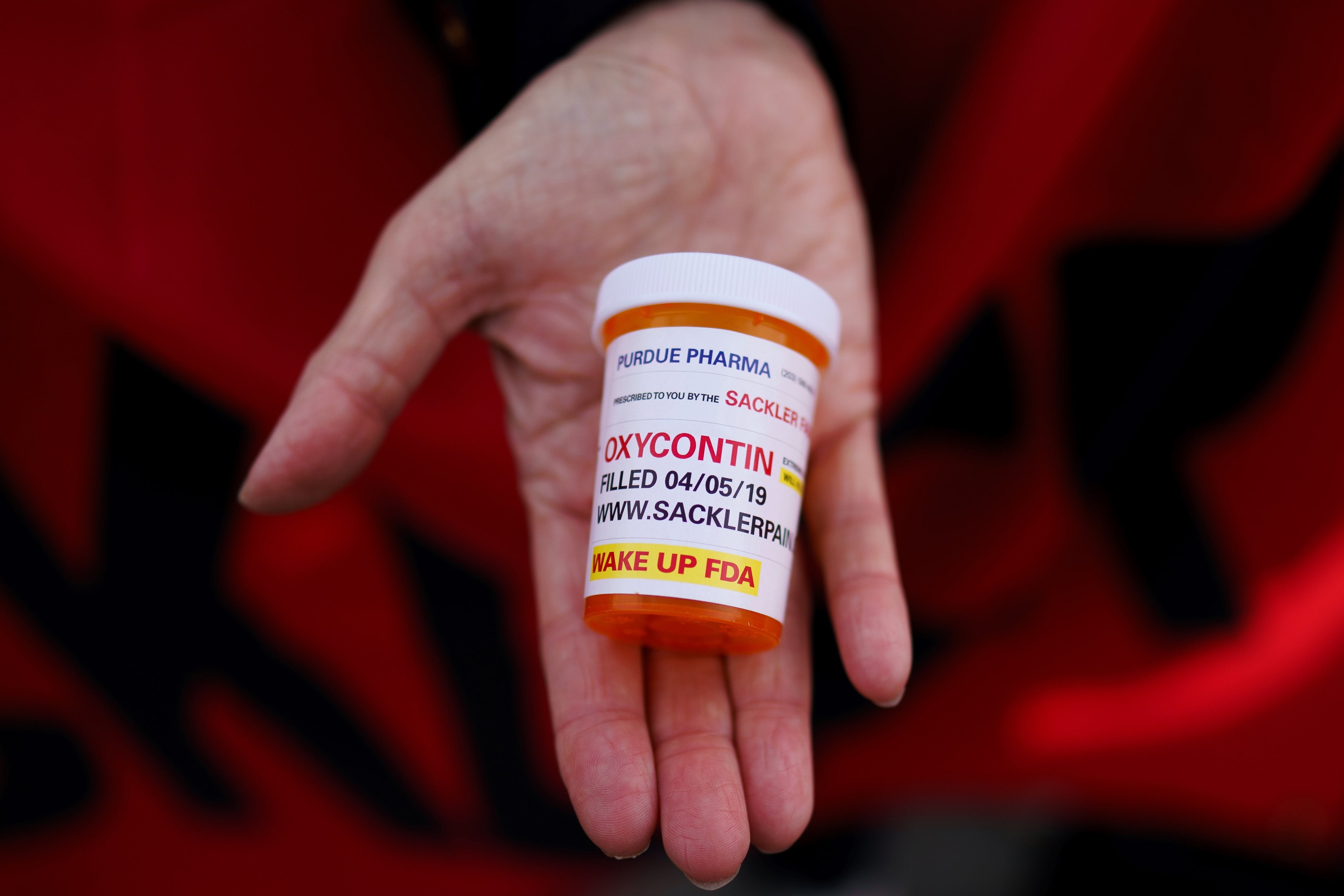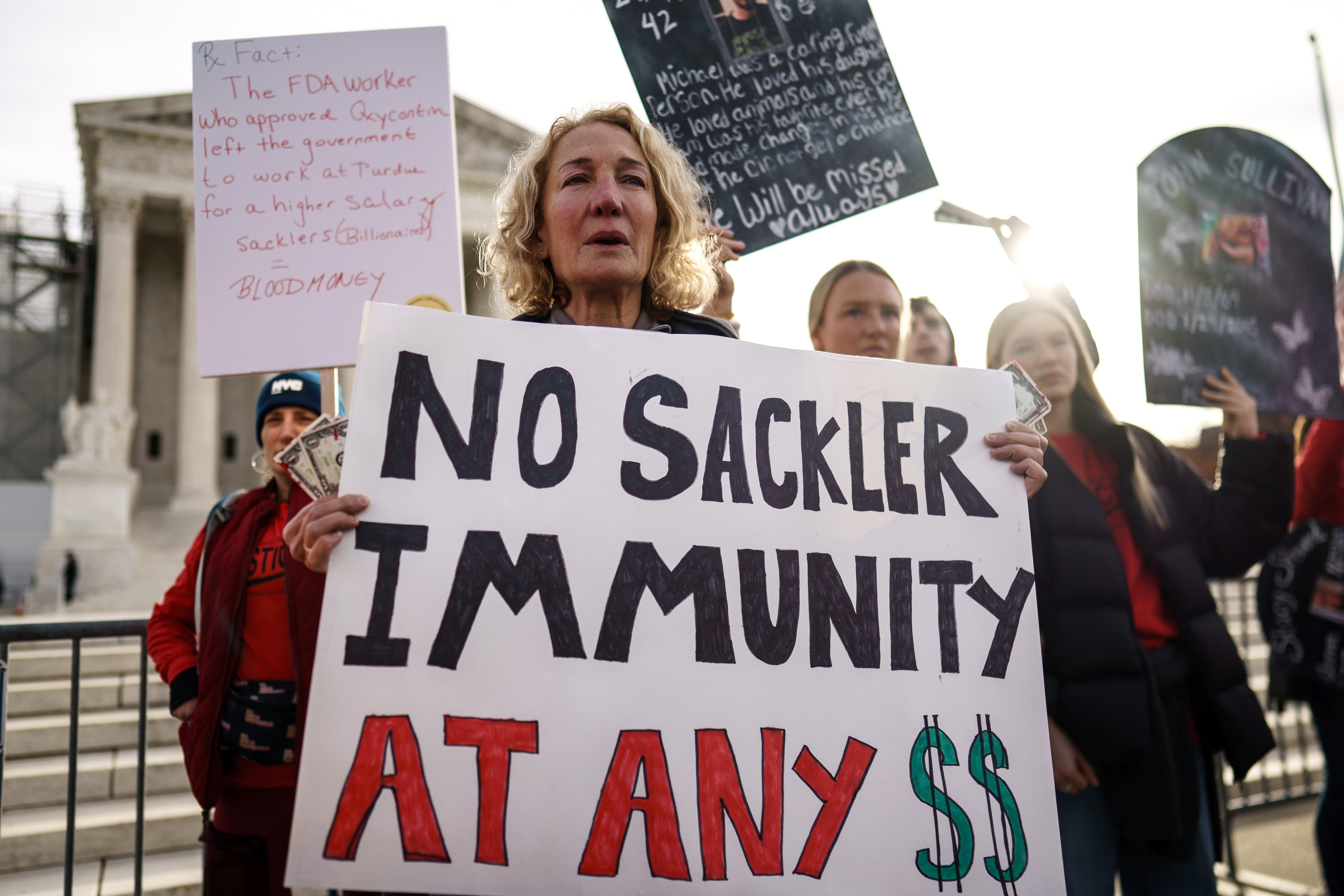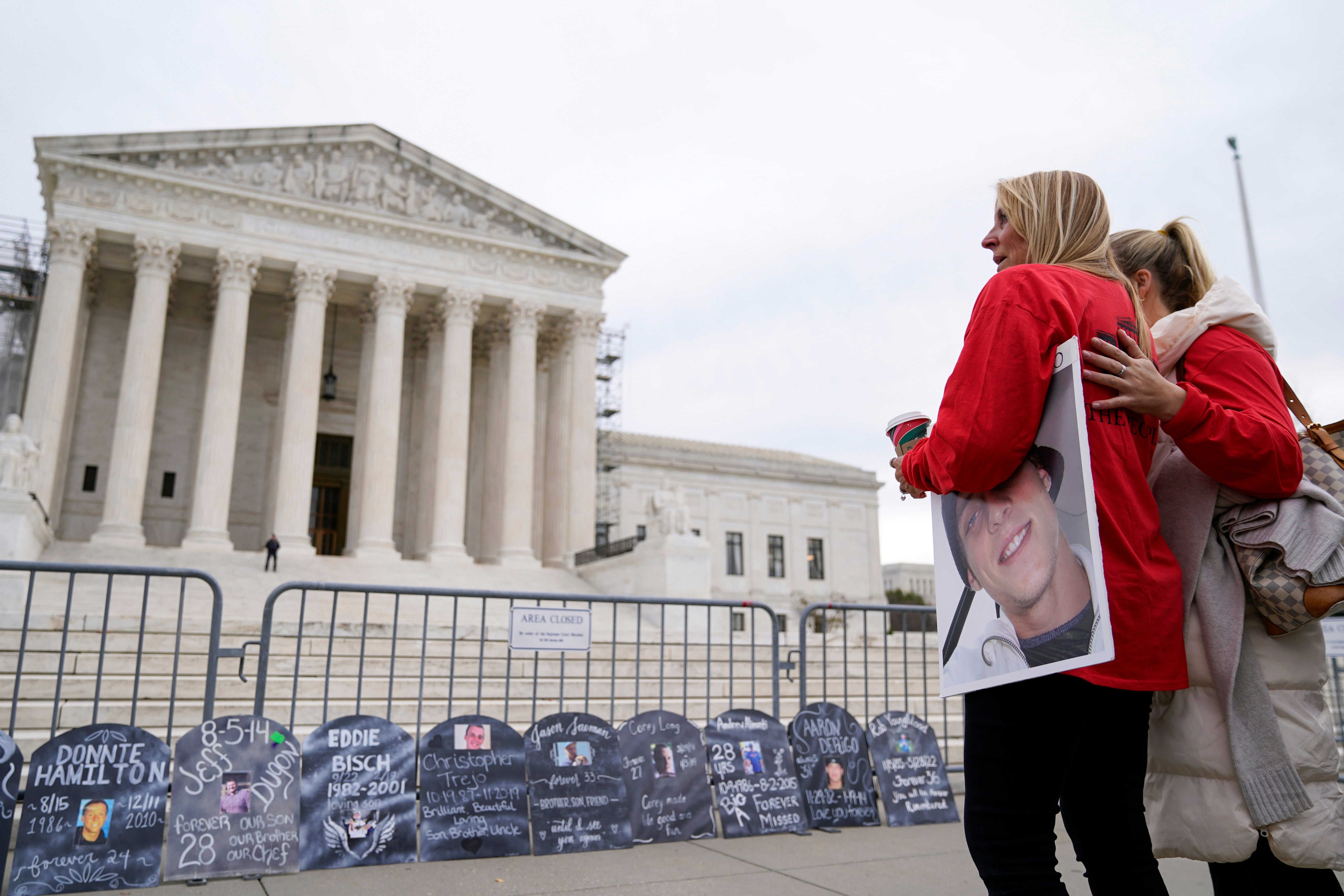The Sackler family wants protection from opioid lawsuits. Will the Supreme Court grant it?
A bankruptcy case before the Supreme Court could grant the Sackler family immunity from opioid-related civil cases Ariana Baio reports


Your support helps us to tell the story
From reproductive rights to climate change to Big Tech, The Independent is on the ground when the story is developing. Whether it's investigating the financials of Elon Musk's pro-Trump PAC or producing our latest documentary, 'The A Word', which shines a light on the American women fighting for reproductive rights, we know how important it is to parse out the facts from the messaging.
At such a critical moment in US history, we need reporters on the ground. Your donation allows us to keep sending journalists to speak to both sides of the story.
The Independent is trusted by Americans across the entire political spectrum. And unlike many other quality news outlets, we choose not to lock Americans out of our reporting and analysis with paywalls. We believe quality journalism should be available to everyone, paid for by those who can afford it.
Your support makes all the difference.In the mid-late 1990s, Purdue Pharma began manufacturing, and heavily marketing, an opioid pill that has quickly become a thorn in the side of the world: OxyContin.
The implications of the pill, which is widely believed to have heavily contributed to, if not sparked, the opioid epidemic, is now making its way to the Supreme Court in a case that, at first, appears as another bankruptcy case.
In Harrington v Purdue Pharma, justices are being asked to decide if a reorganisation plan created by Purdue Pharmaceuticals under their Chapter 11 claim, can allow for a third party, aka the company’s former owners, the Sackler family, to be granted immunity from civil liability even though the Sacklers have not declared bankruptcy themselves.
Under the current deal, victims can obtain long-awaited financial compensation but cannot bring civil suits against individual members of the Sackler family.
Should the court strike down the deal, it would set negotiations go back to square one which would undoubtedly take longer to hash out given the Sacklers wouldn’t have extensive protections.
But it would also give victims the opportunity to bring the Sackler family to civil court.
Millions of people in the US have been impacted by the opioid epidemic.
Between 1999 and 2021, over 280,000 people died of overdoses involving prescription opioids, according to the CDC. In 2021 alone, the number of deaths involving prescription opioids was five times the number it was in 1999.
Only in the last 10-15 years have pharmaceutical companies begun facing lawsuits over their marketing and manufacturing of easily accessible opioid prescriptions.
In 2007, Purdue pled guilty to felony charges of “misbranding” the drug – including its risk for addiction – and agreed to pay $600m in fines.

Over the next few years, lawsuits seeking damages began flooding Purdue Pharma and the Sacklers from victims, states, local governments, Native American tribes and more.
This includes Ellen Isaacs, who in her amicus brief to the court, said she found her 32-year-old son dead on their bathroom floor from an opioid overdose after he got hooked on OxyContin pills that were sold to him to manage pain.
The government claims that to “protect themselves from potential money judgments” the Sacklers withdrew approximately $11bn from the company and transferred it overseas – more than 40 per cent of which went to Purdue’s taxes. During this time, the Sacklers also began removing themselves from the company’s board.
With mounting lawsuits and about 75 per cent of its assets drained, Purdue filed for Chapter 11 bankruptcy in 2019.
But the Sacklers did not and instead negotiated a strategy.
In its proposed plan of reorganisation, Purdue Pharma would pay $1.2bn for administrative expenses and distribution to opioid victims. About 138,000 plaintiffs could receive anywhere between $3,500 and $48,000 over the next 10 years.
Then, in a separate settlement that would be implemented into Purdue’s reorganisation plan, the Sackler family agreed to contribute approximately $4.3bn – that number eventually turned into $6bn when the deal was sent to the Court of Appeals.
But in return for contributing to the settlement, the Sacklers and other non-debtors would be free of all opioid-related claims.
In short, it is a $6bn get-out-of-jail card.

The tactic has been used in other lawsuits to protect individual liability like in the sexual abuse suits against the Catholic Church and Boy Scouts of America.
Purdue Pharma’s bankruptcy plan was initially approved by a New York bankruptcy court and 95 per cent of the victims. However, most of the claimants who were entitled to vote or had personal injury claims failed to vote.
More than 2,600 personal-injury claimants voted against the plan – including Ms Isaacs.
"It’s just all wrong," Ms Isaacs told CBS News. "I want my day with Richard Sackler."
The US Trustee Program, an arm of the Justice Department that serves as a watchdog for bankruptcy cases, opposed the plan claiming that the deal prevents people from pursuing individual family members in civil court – imposing on their right to due process.
Curtis E Gannon, the deputy solicitor general arguing on behalf of the Trustee Program, said on Monday that because the Sackler family had not filed for bankruptcy themselves they should not be permitted to receive release protections through a bankruptcy court.
The protections are typically reserved for those in “financial distress” but Mr Gannon said the Sackler family was not and cited how they increased their initial offer from $4.3bn to $6bn during litigation.
“The Sacklers have not made all their assets available to the state,” Mr Gannon told justices.
He suggested Congress could make legislation that would allow for deals like this to exist but in narrower situations.
Meanwhile, attorneys representing Purdue Pharma and unsecured creditors of Purdue Pharma said that the addition of the release was necessary in order for victims to have any sort of relief because the Sacklers would have refused to contribute to the deal if there was not one.
“Without the release, the plan will unravel, and Chapter 7 liquidation will occur,” Pratik Shah, representing The Official Committee of Unsecured Creditors of Purdue Pharma LP, said.
Mr Shah argued that the Sacklers would be faced with an overwhelming number of lawsuits, any of which could quickly wipe out any potential money for victims if civil suits were permitted.

By the end of the arguments, justices seemed split on the issue.
Should the court uphold the deal, it would set a precedent allowing other people to take advantage of company bankruptcy claims and avoid liability through broad releases.
The court will decide the case in spring 2024.